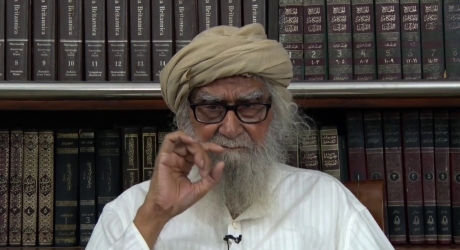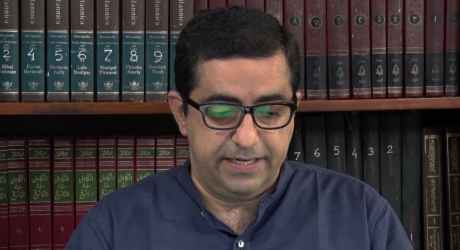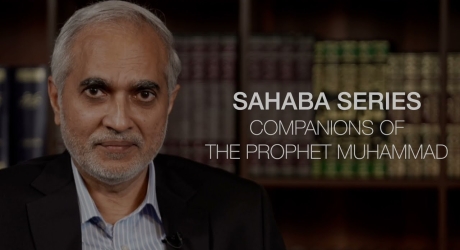The Prophet of Islam was born in 570 CE at Makkah and died in 632 CE at Madinah. The Muslims of that time who was the Prophet’s Companions are called Sahaba (Companions). The number of his Companions was about one lakh twenty-four thousand. The lives of Companions are well recorded in the books of ‘Rijal’. However, the number of Companions is not limited to those whose lives have been recorded in these Arabic books. There are companions other than those physically present during the Prophet’s lifetime; they may be called the spiritual companions of the Prophet and are spread throughout the whole of human history.
Who were these spiritual companions? They were those honest people who were born seekers of truth. Then they discovered the Prophet through further study and decided to follow the pattern of his life.
Their sole concern was to understand the example of the Prophet and then sincerely follow it. Some of those spiritual companions may be called “companion plus.” They were able to know more about the life and history of the Prophet of Islam in greater detail, which was naturally not available to the believers of the early period. These historical details were recorded in the books of Hadith (sayings and deeds of the Prophet of Islam) and Seerah (life of the Prophet) in the later periods of Islamic history.
Featured Articles
Featured Videos
FAQs
Yes. Muslims must take lessons from the lives of the Companions and emulate them. The Companions of the Prophet—the Sahabah—stand alongside him in history just as they stood alongside him during his lifetime, for they were the ones selected by God to assist His messenger. They joined with him in seeing his divine mission through to its proper conclusion. As ‘Abdullah ibn Mas’ud said: “God chose them to accompany His Prophet, and to establish his religion.”
Source: The Seeker’s Guide
The historian Tabarani tells us on the authority of Masar ibn Makhramah, of how on one occasion the Prophet addressed the Companions with these words: “God has sent me as a mercy for all, so pass on what you have heard from me. God will make manifest His mercy. And do not quarrel with one another, as the disciples quarreled over Jesus, the son of Mary. He called on them to perform the same mission as I am entrusting to you now. But those who lived far away did not like the idea, and asked not to go, and Jesus remonstrated with his Lord over this matter.” “We will pass on your message,” the Companions assured him in response. “Send us wherever you please.”
Internal friction is the greatest thorn in the side of a community, preventing its members from pursuing a constructive course of action. The Companions did not let themselves sink into the quagmire of petty controversies. Fear of God had imbued them with a profound sense of responsibility. They concentrated on discharging these responsibilities and had no time for quarrels, which would have prevented them from doing so. Even during the Prophet’s lifetime, they had taken Islam to the borders of the Arabian Peninsula. After his demise, they continued to act as if at his behest. Blind to all thoughts of self—aggrandisement, they dispersed in the neighbouring lands. Their homes were just like small schools, in which they imparted to people knowledge of the Arabic language, the Quran, and the Prophet’s Sunnah. In this way, they passed on what they had heard from the Prophet.
Source: Life of Prophet Muhammad
We find an example of keeping a positive attitude from the life of a Companion of the Prophet. Khalid ibn al-Walid was an extremely brave and able soldier, who remained commander of the Muslim army in Syria from the time of the Prophet right throughout the caliphate of Abu Bakr. ‘Umar, however, disapproved of some of Khalid’s habits and asked Abu Bakr to remove him from his command. Abu Bakr did not act on ‘Umar’s advice, but ‘Umar was so set in his opinion that, on becoming Caliph, he dismissed Khalid. The commander of the Muslim army was demoted to the rank of an ordinary soldier.
When the order came, Khalid was laying all low before him as the Muslims’ triumphant march through Syria continued. All of a sudden came the news of his dismissal and the appointment of Abu ‘Ubaydah ibn al-Jarrah in his place. The news shocked Khalid’s army, and a group of soldiers gathered in their leader’s tent. They assured him of their support and urged him to defy the Caliph’s orders. Khalid sent them away, telling them that he did not fight for ‘Umar’s cause; he fought for the cause of ‘Umar’s Lord. Before he had fought as commander; now he would fight as an ordinary soldier.
Only a person who rises above grudges and rancour can act in this manner—one who has a positive attitude to life and refrains from reacting adversely. Khalid’s words show how deeply involved he was in doing the will of God. So much so that he took ‘Umar’s decision completely in his stride.
Source: Life of Prophet Muhammad









